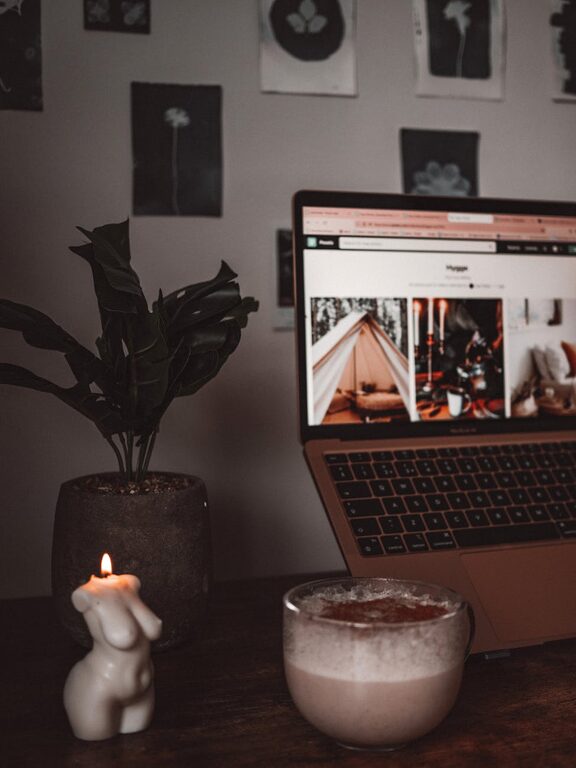Creating a calm and peaceful evening routine can significantly improve your sleep quality and overall well-being. Often, it’s the small changes that make the biggest difference. By adjusting a few habits and incorporating relaxing activities, you can transform your evenings from rushed and stressful to serene and restorative.
In this post, we’ll explore practical tips and simple steps you can take tonight to start building a calmer evening routine.
Why a Calm Evening Routine Matters
Evenings set the tone for a good night’s sleep, which in turn impacts your energy and mood the next day. Stress or screen time close to bedtime can disrupt your body’s natural rhythms and make it harder to fall asleep.
A calm evening routine helps:
– Signal your body it’s time to wind down
– Lower stress and anxiety levels
– Improve sleep quality and duration
– Boost mental clarity the following day
Instead of large overhauls, focus on small, manageable changes that fit smoothly into your lifestyle.
Step 1: Set a Consistent Bedtime
Having a regular bedtime helps regulate your internal clock. Try to go to bed and wake up at the same time every day, even on weekends.
Tips for establishing a bedtime:
– Choose a time that allows 7-9 hours of sleep
– Use reminders or alarms to prompt your wind-down routine
– Avoid staying up late on screens or work tasks
Consistency supports better sleep quality and easier mornings.
Step 2: Limit Screen Time Before Bed
Phones, tablets, and TVs emit blue light, which can interfere with your body’s production of melatonin—the hormone that signals sleepiness.
How to reduce screen impact:
– Turn off screens 30-60 minutes before bed
– Use blue light filters if you must use devices
– Switch to calming activities like reading a book or listening to music
This practice helps prepare your mind and body for rest.
Step 3: Create a Relaxing Environment
Your bedroom should be a sanctuary for sleep.
Here’s how to optimize your space:
– Keep your room cool, dark, and quiet
– Remove clutter that can cause stress visually
– Use soothing scents like lavender through a diffuser or pillow spray
– Invest in comfortable bedding and pillows suited to your preferences
A pleasant environment encourages relaxation and deep sleep.
Step 4: Incorporate Gentle Activities to Unwind
Engage in calming activities that help your brain transition out of the day’s busyness.
Some ideas include:
– Light stretching or yoga: Helps release tension in muscles
– Meditation or deep breathing: Reduces stress and heart rate
– Journaling: Write down what you’re grateful for or simple thoughts to clear your mind
– Listening to soft music or nature sounds: Creates a peaceful atmosphere
Try different activities to find what best helps you feel calm.
Step 5: Mind Your Evening Meals and Drinks
What you consume in the evening can impact your sleep.
Consider these suggestions:
– Avoid heavy, spicy, or acidic foods close to bedtime to prevent indigestion
– Limit caffeine intake after mid-afternoon as it can stay in your system for hours
– Drink herbal teas known for calming effects, like chamomile or peppermint
– Keep hydrated but reduce fluids right before bed to minimize nighttime awakenings
Balanced choices help your body relax and reduce discomfort.
Step 6: Prepare the Next Day Earlier
Worrying about tomorrow can keep your mind active late at night. Taking some tasks off your plate in the evening can ease anxiety.
Try:
– Laying out clothes for the next day
– Preparing your lunch or breakfast
– Writing a to-do list to organize your thoughts
Having a plan in place allows your mind to rest, knowing things are ready.
Final Thoughts: Be Patient and Flexible
Adjusting your evening routine is a process. Don’t be discouraged if it takes time to notice changes or if you occasionally slip back into old habits.
Celebrate the small wins and tweak your routine as needed to fit your lifestyle. Over time, these small changes will help create calm, restful evenings that pave the way for better sleep and more energized days.
—
Try incorporating one or two of these small changes tonight and observe how they affect your mood and relaxation. With consistency, evenings can become your favorite peaceful part of the day.



